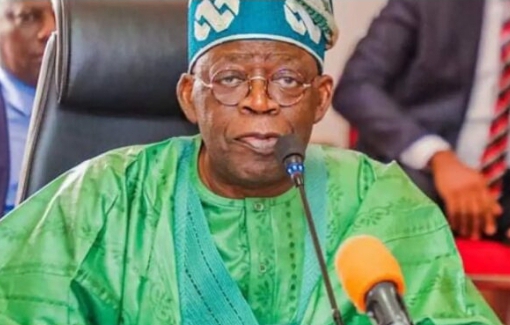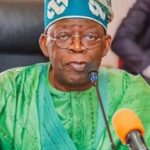Nigeria is a society full of young and vibrant minds. Yet, with all its potential, the country is lagging in critical areas, especially when it comes to modern tech skills. It’s almost as if we’re content with producing an army of graduates who are only good at regurgitating memorized information without having the capability to apply such knowledge or the practical skills to make them competitive in the job market. Whereas, if Nigeria truly wants to produce future-ready graduates that can thrive in the digital age, digital skills must be prioritized in Nigeria’s education curriculum for the youth to acquire tech skills that go beyond memorizing information which they can’t apply.

The world is changing rapidly, and the traditional way of doing things is becoming obsolete. In the next few years, many business models will disappear, and Nigeria’s education curriculum doesn’t seem to be keeping up with the changes. The landscape of industry is undergoing a significant transformation and traditional skills are becoming less valuable. For instance, a software application named Sage has been invented and it surpasses human accountants in terms of performance. In the USA, young lawyers can’t get jobs because of IBM Watson, which can provide legal advice with 90% accuracy compared to 70% accuracy when done by humans. Watson also helps nurses diagnose cancer four times more accurately than human nurses.
Read Also: The Future of Nigeria Without Petroleum Subsidy
Likewise, the advancements in technology have brought about a new medical device known as the “Tricorder,” which is designed to work seamlessly with your phone to capture your retina scan, blood sample, and even your breath sample to detect nearly any disease with great accuracy. The emergence of this cutting-edge technology is expected to have a significant impact on healthcare and the affordability of the device means that in the next few years, people across the globe will have access to world-class medical service that is nearly free of cost. The Tricorder is set to revolutionize the medical industry by providing efficient and cost-effective health solutions to patients worldwide. The nation of Israel has also developed a technological innovation known as “Cam My Eye,” which enhances the visual experience of individuals with visual impairments to a level that approximates that of individuals with unimpaired vision.

It is remarkable to consider that Uber, a ride-sharing service, operates solely as a software platform, without owning any vehicles, yet has achieved the status of the world’s largest taxi company. Similarly, Airbnb, a lodging booking platform, does not own any properties, yet holds the title of the world’s largest hotel company. Facebook has developed advanced pattern recognition software that surpasses human capability in facial recognition. These companies demonstrate the power of innovative business models and cutting-edge technology in disrupting traditional industries. One wonders who among us still avail themselves of the services offered by the Post Office? Likewise, it seems that the traditional medium of newsprint has lost its shine, with a growing number of individuals abstaining from purchasing or reading newspapers over the past couple of years. Moreover, the days of TV and cable TV are numbered, as smart TVs are becoming increasingly abundant and offering options for streaming content over the Internet.
Read Also: 2023 Population Census: A Necessity for Addressing Nigeria’s Problems
In the nearest future, software will disrupt 90% of traditional industries. Given these developments, one might naturally ponder whether the youth of Nigeria are poised to be active participants in this new world. To prepare for the future, Nigeria needs to prioritize digital skills in its education curriculum to ensure that its students are future-ready. Meanwhile, Nigeria’s education curriculum is still focused on traditional courses, which are necessary but not enough to prepare students for the future. The future of education and industry is changing, and the changes are already happening. Artificial intelligence and other technological advancements will disrupt many industries. Hence, Nigerian youths need to be equipped with digital skills to turn out to be employable and compete in the global market.
Digital skills are becoming more and more important and it is crucial to observe that other developed nations have recognized the importance of tech education and have been investing in it for quite some time. Through education scholarship programs, those countries have provided their citizens with access to top-notch technology education, resulting in a highly skilled and tech-savvy workforce. Conversely, the Nigerian government at various levels has been implementing its scholarship programs for students pursuing degrees in traditional courses, which is not a promising effort towards equipping our scholars with the skills needed to compete in the global market.

It is disheartening to note that while Nigerian students are still focused on traditional courses, their counterparts in other nations have already progressed to producing cutting-edge technology. This disparity in education and skills development is a cause for concern, and it highlights the urgent need for Nigeria to prioritize technology education in its scholarship programs. As a society, we must recognize the critical role that technology plays in driving progress and innovation, and take steps to ensure that our education system equips our students with the skills and knowledge needed to thrive in today’s rapidly evolving technological landscape.
Accordingly, digital skills are important and Nigeria needs to prioritize it in its education curriculum to ensure that its students are future-ready. Digital skills can help students to become more innovative, creative, and adaptable. They can also help students to be more productive and efficient in their work. Digital skills are skills that involve the use of technology. They include skills like Front & Back-End Programming, AI & Machine Learning, Data Analytics, Digital Marketing, Graphic Design, UI/UX Design, And Cybersecurity. These skills are in high demand in the global market, and they are essential for students to be able to compete in the future.
Think of digital skills as tools that students can use to build their future. Just like a carpenter needs a hammer and a saw to build a house, students need digital skills to build their careers. Digital skills are like a compass that can guide students in the right direction to achieve their goals. Just like a compass helps a hiker find the right path, digital skills can help students find the right career path.

Similarly, Nigeria’s education curriculum also needs to blend traditional classes that are full of memorizing theory with 45% of virtual classes that will be full of practical learning. Practical learning is essential for students to be able to apply the skills they have learned in real-world situations. It also helps students to be more innovative and creative and helps them to develop problem-solving skills.
Virtual education is a method of imparting knowledge to students without physical attendance in a physical classroom setting. It utilizes digital tools to deliver an engaging set of courses in an interactive learning environment to students and provides students with an alternative way to access course content using their laptops or mobile devices from the comfort of wherever they have access to a reliable internet connection. It also allowed educators to create engaging lesson plans that allow students to absorb knowledge faster and retain information longer, while providing them with greater autonomy over their studies.

Technology is revolutionizing the education system in a variety of ways, making learning more efficient, interactive, and accessible. Through the use of online learning platforms and educational software, students can access materials, complete activities and work with peers without being limited by physical boundaries. Virtual education can remove barriers like geographic limitations and limited course offerings by providing students access to a variety of courses and instructors from around the globe. This means that students living in remote or rural areas can easily take part in online learning, which may not be available to them otherwise.
As a result of technological advancements, students have the option to pursue higher education from anywhere in the world with an internet connection. The virtual learning environment also encourages creativity and collaboration between students, enabling them to explore different perspectives in dialogue with their peers. This promotes critical thinking and problem-solving skills, which are important for success in today’s increasingly competitive job market. Furthermore, virtual learning can provide deeper insights into topics via simulations that would otherwise be difficult to replicate in person.
Read Also: POLITICS OF REDESIGNING NIGERIA CURRENCY
Overall, virtual learning has tremendous potential when it comes to transforming education and giving people around the world access to quality instruction, regardless of personal circumstances or financial resources. Online learning platforms have become increasingly popular in the education sector, as they offer educators a variety of options for teaching their students. These platforms make it easier to disseminate content, design courses, and track student progress. There are several types of online learning platforms available that can provide educators with different features and functionalities. The positive impact this could have on Nigerian education is immense. This form of teaching is essential for Nigeria to maximize its potential benefits globally.
Conclusion
In conclusion, digital skills are essential for students to be able to compete in the global market and to be able to adapt to the changes that are happening in the world. Nigeria’s education curriculum needs to ensure that its students are future-ready. Hence, prioritizing digital skills in Nigeria’s education curriculum is not only essential but also timely. The world is rapidly evolving, and technology is the driving force behind this change. It is no longer enough for students to just learn the basics traditional subjects; they need to be equipped with digital skills that will make them future-ready. By incorporating digital skills into the education system, Nigeria will be able to bridge the digital divide and create a workforce that is capable of competing on a global scale. Hence, the goal of this blog post is to urge the Nigerian government to take swift action to incorporate digital skills into the education curriculum and to blend traditional classes with 45% of virtual classes. The benefits of this action will not only be felt by students but also by the country as a whole. Nigeria needs to embrace the future by embracing this change and provide its students with the skills they need to succeed in creating a brighter future for Nigeria.
Idowu E. Faleye, a certified Data Analyst, Political Activist, and writer, is a graduate of Politics & Public Administration. He’s the Founder/Chief Data Officer at EphraimHill Data Blog–a Data Reporting Site that is niche in Politics & Society. He can be reached at +2348132100608. or ephraimhill01@gmail.com












































![The Trend of Insecurity in Nigeria. [Part 2]](https://ephraimhilldc.com/wp-content/uploads/2024/09/Computer-Monitoring-of-Remote-areas.png)


































